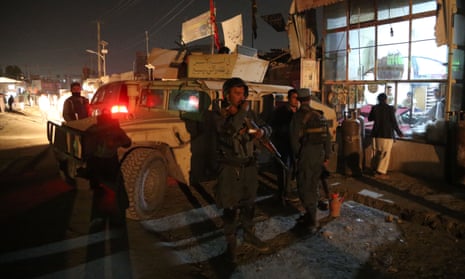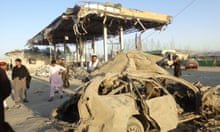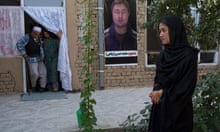More than 70 people have been killed in twin suicide bombings on mosques in Afghanistan, government officials said.
In Kabul, a suicide bomber killed at least 39 people and injured 45 more when he detonated his explosives among some 100 worshippers in a Shia mosque in the western part of the capital, according to the interior ministry. Some of the victims were reportedly shot after the blast on Friday evening.
In central Ghor province, a suicide bomber killed 33 worshippers in a Sunni mosque, purportedly targeting a local commander from the anti-Taliban Jamiat party, said police spokesman Mohammad Iqbal Nizami.
There was no immediate claim of responsibility for either attack.
The attacks came in a deadly week for Afghans, in which nearly 200 people have been killed, the majority civilians. After 74 people died on Tuesday in a wave of Taliban attacks across the country, 43 soldiers were killed by bomb-strapped Humvees in a pre-dawn attack in Kandahar on Thursday.
The violence comes as the US president, Donald Trump, seeks to escalate the American war in Afghanistan, and as the US ramps up drone strikes against militants in tribal areas on both sides of the Afghan-Pakistani border.
The bombing at Imam Zaman mosque in Kabul hit a city reeling from a series of assaults against the country’s Shia minority.
“I entered the mosque after the attack when there were only dead bodies left. I didn’t count,” said Nasim Ibrahimi, a female worshipper at Imam Zaman mosque. “I saw a father bringing the body of his 14- or 15-year-old son out of the mosque. I went to the hospital where I saw the dead body of a seven-year-old boy.”
In late September, suicide militants disguised as shepherds killed five people gathered to mark Ashura, one of the holiest days on the Shia calendar. They were prevented from entering a mosque by neighbourhood guards armed with some of the estimated 500 weapons the government has handed to civilians to protect Shia mosques in the capital.
In August, at least 40 people were killed when a suicide bomber followed by gunmen laid a four-hour siege to a Shia mosque in northern Kabul.
Afghan Shias have found themselves under threat since militants loyal to Islamic State set their sights on Kabul last summer. Before the attack on Friday, 84 people had been killed and nearly 200 injured in direct attacks against Shia holy places or religious ceremonies this year, according to the UN.
Isis has claimed responsibility for most of the attacks.
Ashraf Ghani, the Afghan president, condemned the attacks. “Such acts will not affect the unity of Afghans,” he said.
Additional reporting by Akhtar Mohammad Makoii








